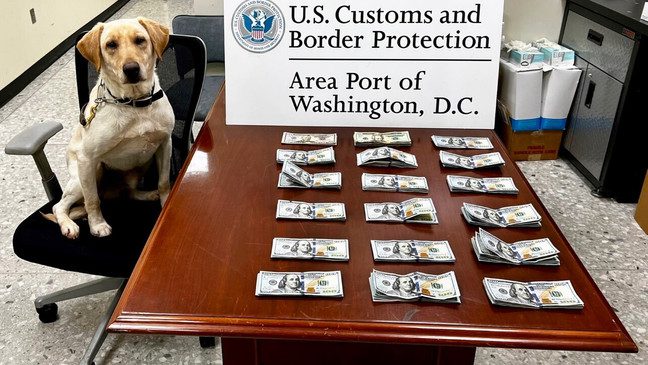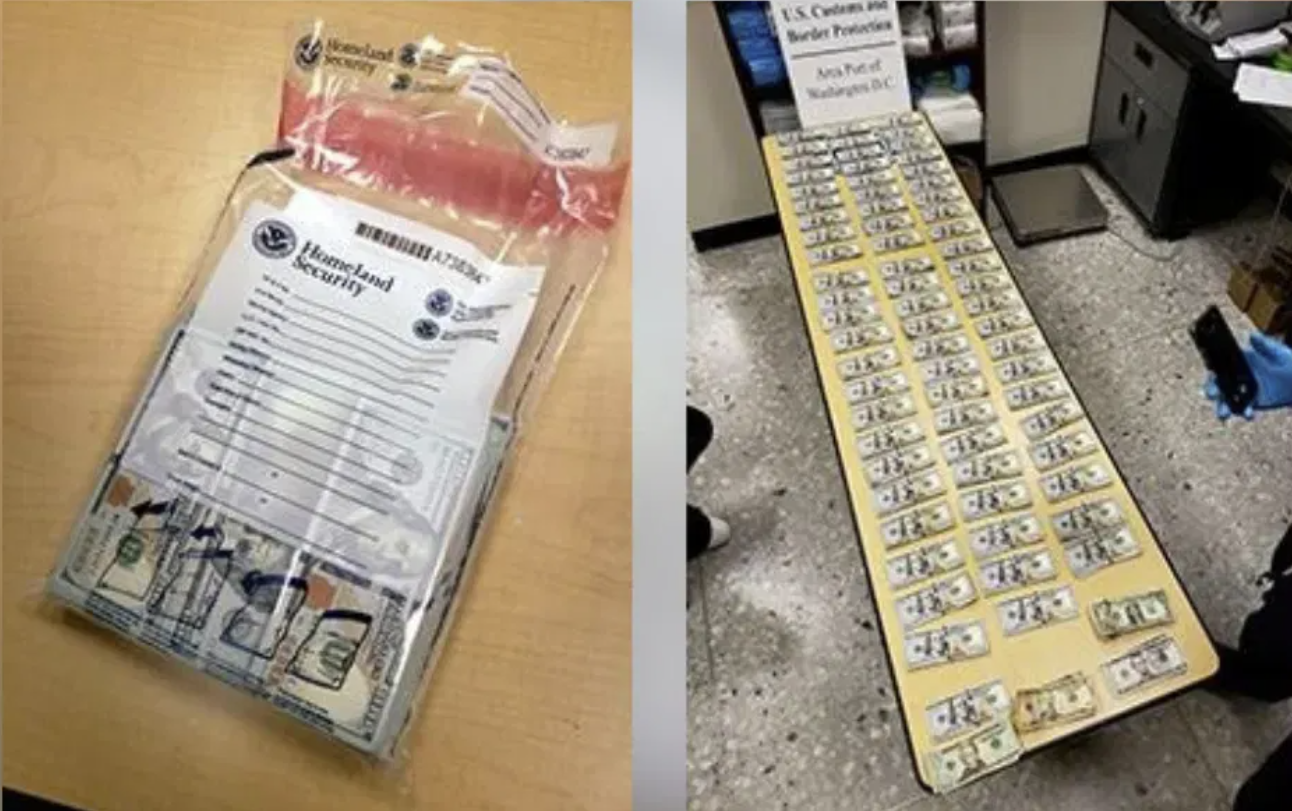
Pre-Christmas Crackdown: Travelers Don’t Realize They Must Declare Cash When Leaving U.S.
U.S. Customs and Border Protection is engaged in a “pre-Christmas crackdown” on passengers carrying cash out of the country with an apparent focus on Washington Dulles airport.
On Thursday they seized $68,000 from a family flying United Airlines 612 to Lagos, Nigeria after searching their bags. They were carrying $68,216, and authorities left them with $216 and allowed them to continue their travels.

Credit: Customs and Border Protection Seizures At Washington Dulles
It’s widely known that you have to declare when you’re bringing over $10,000 in cash into the United States. You disclose this on your customs declaration form, and then must file form fincen 105. If you’re traveling as a family, under one customs declaration, then the $10,000 limit without disclosure applies to the combined cash being carried by everyone in the family.
Much less well-known is that it’s even required that Americans carrying cash out of the United States have to declare it if it’s in excess of $10,000. That’s true even though there’s currently not ‘departure immigration’ clearance when leaving the United States. Most passengers think that getting on an international flight out of the U.S. is no different than getting on a domestic one, and wouldn’t have any idea where or how to declare their cash even if they knew they had to do it.
- You can find a customs officer at your international departure airport
- Or complete FinCen form 105 online, especially important if you’re flying out of an airport like Washington National which has international flights but no customs facility. (International flights returning to the airport are limited to destinations with US immigration preclearance, and also are subject to the 1250 mile perimeter rule in any case.)
Washington Dulles is one of the airports where this receives the greatest enforcement, or at least where there are the most stories of seizures – and it’s almost always cash held by passengers departing the country (and it’s almost always minorities and often heading to Africa where it’s often easier to deal in cash).

Credit: Customs and Border Protection Seizures At Washington Dulles
Hours after seizing $68,000, CBP at Dulles seized $56,000 from two passengers flying Qatar Airways to Doha.
- They actually declared they were taking cash out of the country
- But the amount they listed was too low, $30,000 when the two passengers combined were actually carrying $42,000 with them. (It’s likely that the $30,000 was an approximation of what the one was carrying, and the other held somewhat less than $10,000 which they thought was below the threshold.)
- And they didn’t include cash in their checked bag.
The government kept the money, the passengers continued on their journey, and CBP says the only thing they did wrong was fail to correctly fill out the form.
“These are two currency seizures that could have been completely avoided had the two parties truthfully reported all of their currency to Customs and Border Protection officers,” said Marc E. Calixte, Area Port Director for CBP’s Area Port of Washington, D.C. “CBP urges all travelers to fully comply with our nation’s laws during inspection, including U.S. federal currency reporting law.”
I previously wrote about a woman departing Houston who had the money she was taking to Nigeria to start a medical clinic seized. She simply didn’t know that she was required to fill out a form to bring the money with her when leaving the country. There was no accusation she’d broken any other rules other than the paperwork.
Most of the cash from departing passengers is found by money-sniffing dogs. That’s entirely separate from cash seized at airports by the Drug Enforcement Agency, over the period 2007–2016 the DEA seized a total of $3.2 billion in cash with “zero convictions tied to this money.” The government just keeps most of it.






